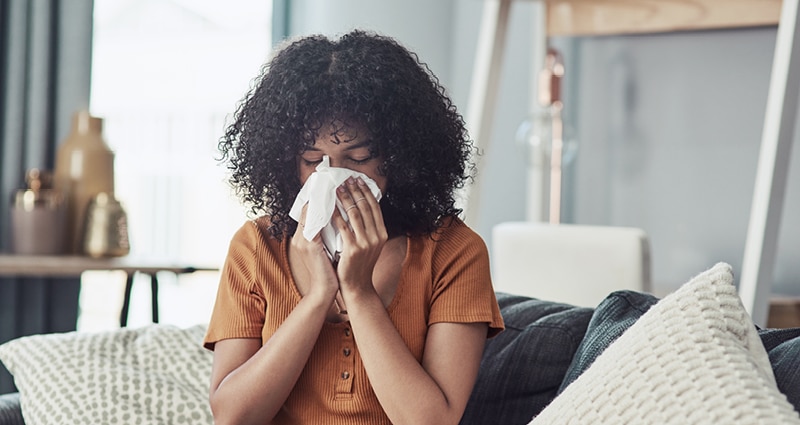Are you prepared for flu season? The Centers for Disease Control and Prevention says flu season usually begins in October, with its peak during the months of December through March.
As a contagious respiratory disease, influenza can be debilitating for even the healthiest of us, with fever, cough and fatigue as some of the main symptoms. In older people, children and people with certain health conditions, the flu can lead to more severe complications.
That’s why it’s important to get vaccinated against the flu. There are plenty of reasons why you’re doing yourself and your loved ones a favor by getting the flu vaccine.
Below are some answers to commonly asked questions about the flu vaccine and flu season.
How do flu vaccines work?
Flu shots introduce a small viral protein from an inactivated virus or a synthetically made recombinant virus. The protein causes antibodies to develop about two weeks later, which provide protection against infection if you happen to encounter the actual flu virus.
I’ve heard the vaccine contains the flu virus. Is that true?
The flu vaccine cannot give you the flu because it does not contain all the viral machinery of the actual flu virus. You may feel mild side effects after vaccination, but this is not the same as the flu illness.
Who should get the flu vaccine?
Flu shots are recommended and available for everyone older than 6 months. Babies are protected by the people around them getting vaccinated.
Getting the flu shot also helps protect your family, friends and coworkers.
When should I get the flu vaccine?
Experts suggest September and October as the best time to get the vaccine for optimal protection throughout flu season. Some people, such as those who are pregnant and in their third trimester, may be advised by their physician to get the vaccine earlier.
How long does the flu vaccine last?
Once vaccinated, you should expect its protection to last about six months, which is why getting the vaccine in early fall is best to combat the flu before it becomes more prominent in late fall/early winter.
Can you still get the flu after taking the flu vaccine?
Yes. In some cases, you may be exposed to the flu before your vaccine immunity sets in (about two weeks after getting the vaccine). If you happen to be infected with the flu after this, the vaccine will still help you combat the toughest flu symptoms.
Vaccination actually reduces the severity of illness in people who do end up getting the flu.
What should I do if I get the flu?
If you get very sick or are at higher risk of complications, get in touch with a primary care provider to see if you need antiviral drugs to treat flu. Stay home and get plenty of rest. Avoid close contact with others in your household.
What should I do if someone in my household gets the flu?
- Avoid face-to-face contact or wear a mask.
- If you have a sick child, hold them with their chin on your shoulder so they don’t cough directly in your face.
- Wash your hands often and right away if touching a sick person or handling their belongings.
- Clean and disinfect surfaces in your house. Keep the air quality clean by opening a window for fresh air or using an air purifier.
What are other ways to protect against the flu besides vaccination?
- Cover your nose and mouth with a tissue when you cough or sneeze.
- Wash your hands often with soap and water.
- Avoid touching your eyes, nose and mouth.
- Improve the air quality around you with an air purifier or opening a window for fresh outside air.
- Wear a mask.
- Avoid people who are sick.
Get tips on other ways to boost your immune system ahead of flu season, and learn more about the flu vaccine and flu season from the Centers for Disease Control and Prevention.




